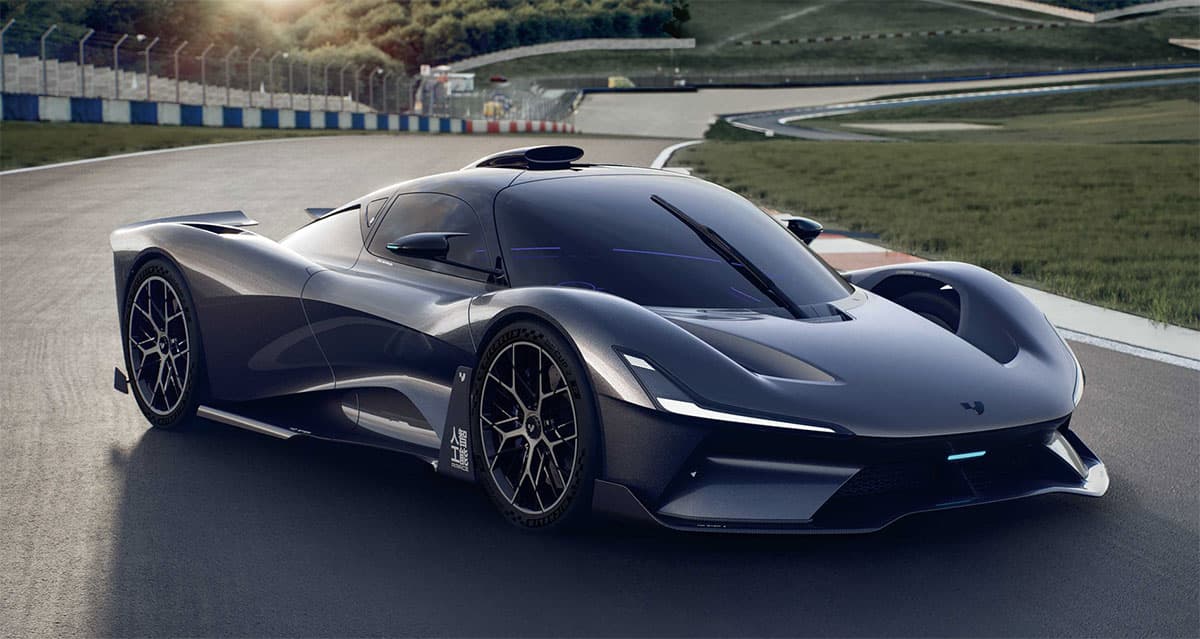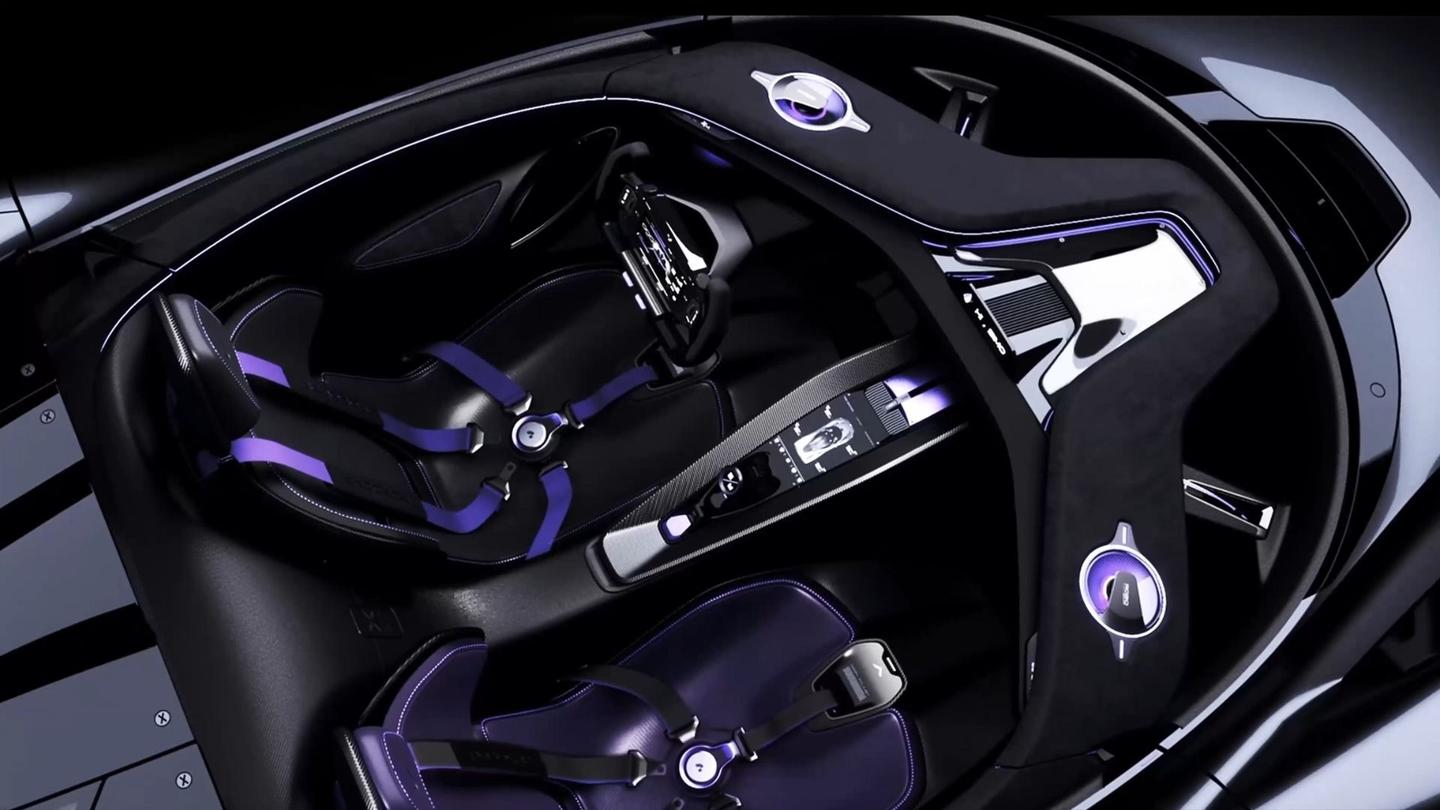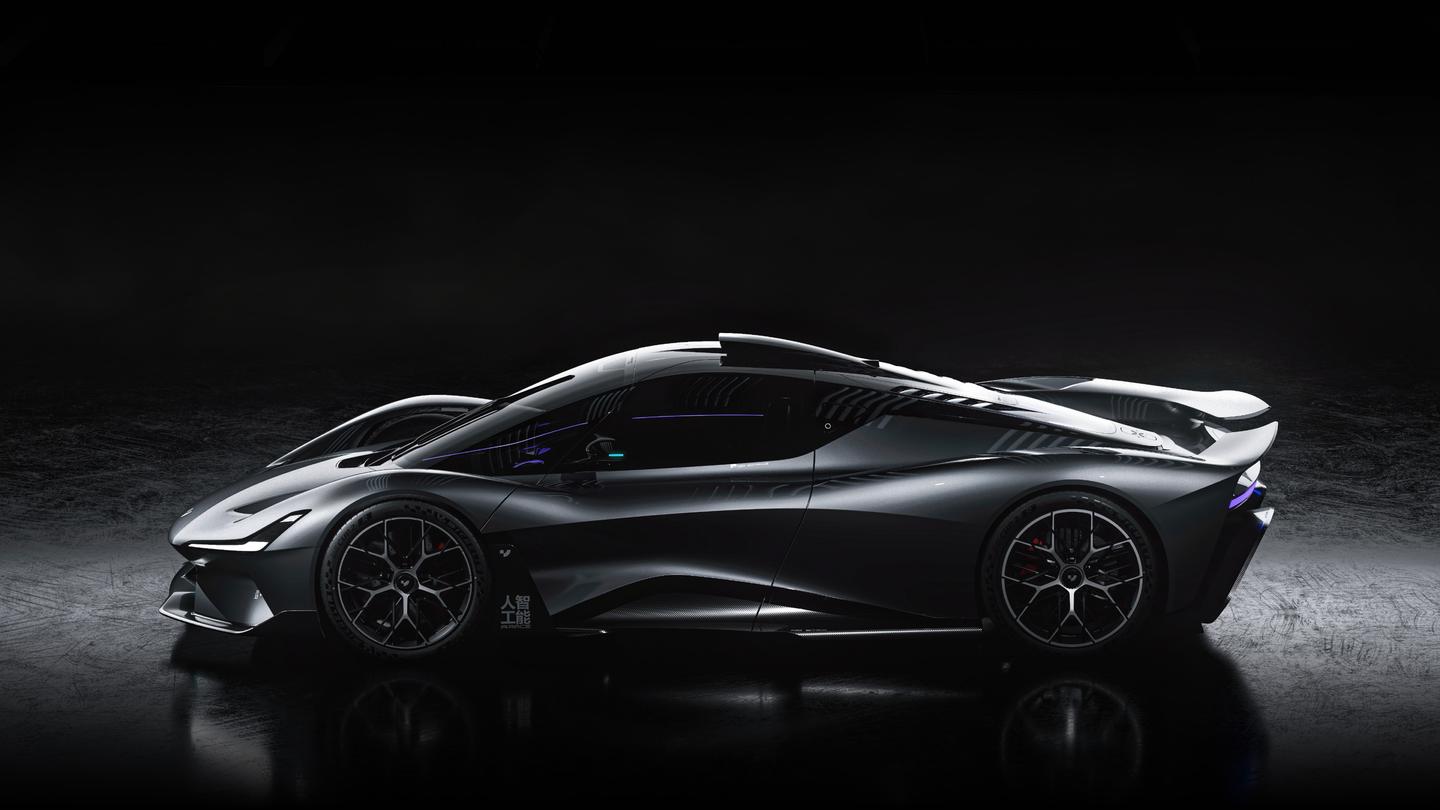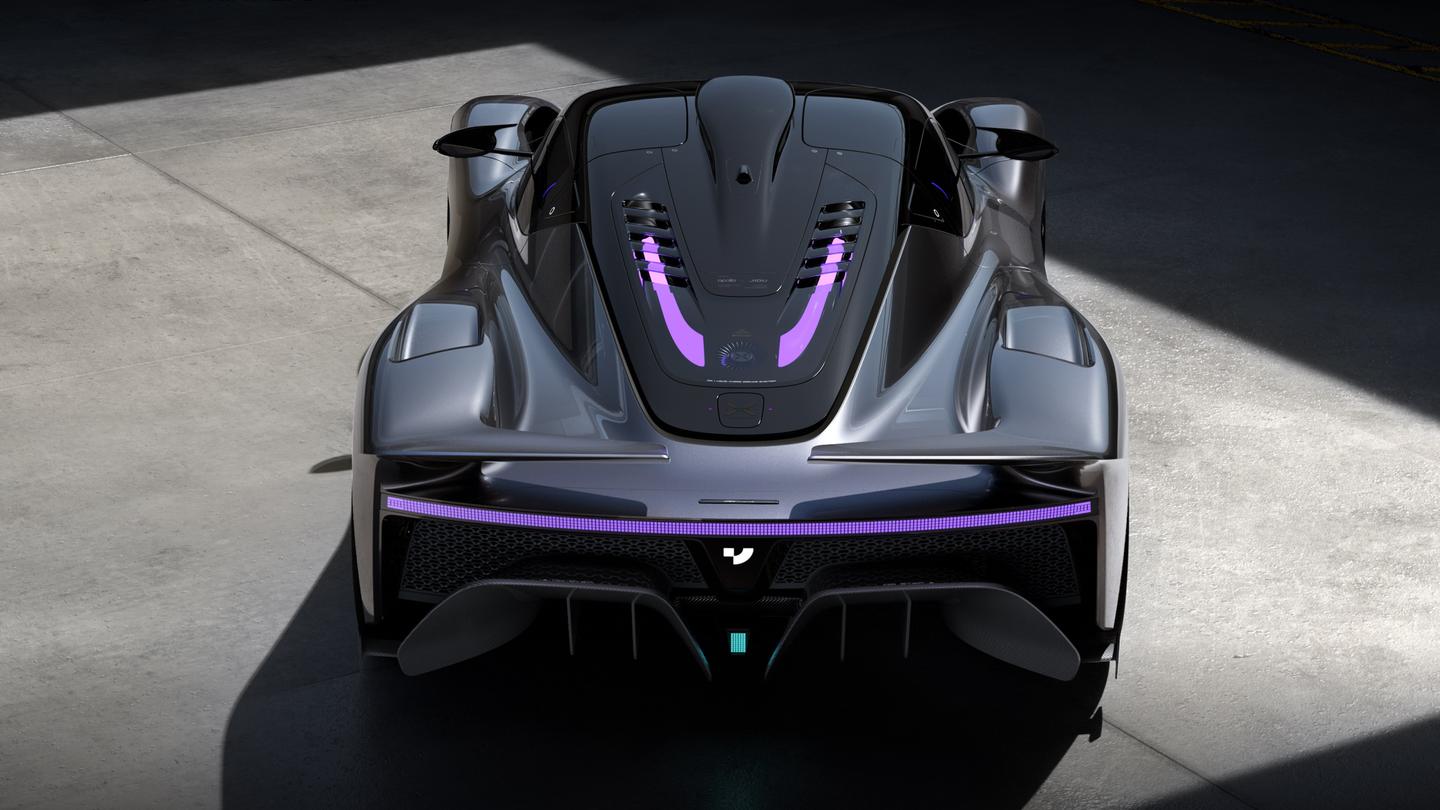Chinese company JiYue has unveiled a stonking high-performance, long-range, intelligent supercar capable of doing 0-60 mph (0-96 km/h) in 1.9 seconds, 400 miles (644 km) to a charge, and featuring a unibody carbon frame.
JiYue is an all-EV brand founded in 2021 when its parent tech company, Baidu, which is well-known for its Robotaxis in China partnered with global automaker Geely to take the leap of faith from software development to actual EV production. The business is dedicated to providing the general public with all-electric “robocars.”
In JiYue’s words, the ROBO X is an AI smart-driving supercar that combines autonomous driving and artificial intelligence for the first time in a high-performance, race-ready electric vehicle. It follows the hatchback-sedan 07, a vehicle with a 545-mile range that was introduced earlier this year in China.

JiYue
A quad-motor, liquid-cooled drive system propels the ROBO X from 0 to 60 mph in less than 1.9 seconds. It’s a “performance beast,” JiYue says, possessing the “perfect balance of excellent aerodynamic performance and high downforce.” Its acceleration numbers will make it one of the quickest production cars in the world, and that 400-mile range is pretty impressive for its category, too.
Looking at those numbers, the closest EV supercar that is comparable is probably the $249,000 Lucid Air Sapphire which does 0-60 mph in 1.89 seconds with a range of 427 miles (687 km).
But the Robo X supercar is not just about speed. It’s aptly named for something loaded with AI tech. There’s a lot of AI integrated into the car – which JiYue says it uses to help optimize driving, handling, efficiency, and safety.

JiYue
The supercar’s vision-based, intelligent driving system makes use of Baidu’s Apollo technology, making it the first roadgoing electric supercar to make use of pure-vision ADAS technology for autonomous driving on racetracks. It’ll also have self-driving capabilities on the street.
It features JiYue’s AI voice model and the Simo virtual assistant, which helps drivers obtain real-time vehicle information, such as chassis dynamics, motor torque, and thermal management, through voice commands. Additionally, they have control over a number of features, enabling a customized and connected driving experience.
But it’s not to say that the makers only emphasized the software. One glimpse of the car is enough to tell you that design was definitely a focus – indeed, enough that the Robo X won both the 2024 German Red Dot Design Award and the 2025 German Design Award, even if we wouldn’t call it the most distinctive supercar shape we’ve ever seen.

JiYue
JiYue says it’s given equal priority to aerodynamics and aesthetics. The split rear spoiler is an interesting example – it’d certainly provide more downforce if the two sides met in the middle, but it’s an arresting visual statement nonetheless.
It’s also fun to see some vestigial remnants of combustion-car design here – take the ram air scoop on top of the cabin for instance, which is presumably simply used to funnel cool air to hot motors and batteries. Or the venting in the rear cover behind it, where a mid-engined supercar would typically allow a peek in at a suitably muscular V8, V10 or V12 engine.
A unibody carbon fiber frame and 5052 aluminum alloy are used to create the supercar’s lightweight and robust body. Weight was a clear focus in its construction – as it is with all electric performance vehicles that need to struggle against the heft of large battery packs.

JiYue
The Robo X was revealed this past week at the 2024 Guangzhou auto show in China. Pre-orders for the ROBO X have opened for a deposit of RMB 49,999 ($6,915), but mass production is not expected to start until 2027. That’s quite a wait in this day and age.
Either way, it’s highly unlikely ever to make its way to US shores as a product, particularly if the proposed ban on Chinese connected vehicle technologies and components goes through.
Source: JiYue
Source of Article